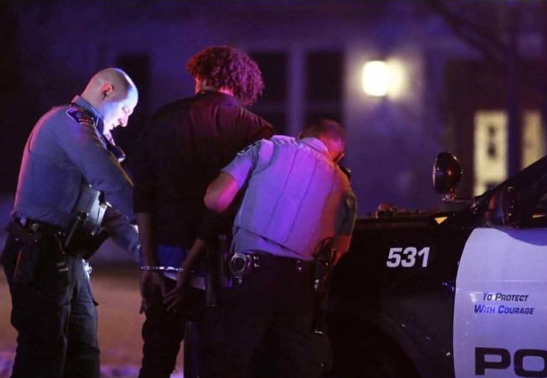A small town in Kansas has unexpectedly found itself at the center of national attention following shocking allegations against its mayor. Joe Ceballos, the mayor of Coldwater, has been charged with multiple counts of voter fraud. State officials allege that Ceballos, a legal permanent resident originally from Mexico, voted in several U.S. elections despite not being a citizen. This high-profile case has ignited debate about the integrity of voter registration systems and the safeguards meant to protect them.
The Charges Against Mayor Ceballos
Kansas Attorney General Kris Kobach and Secretary of State Scott Schwab, both prominent Republican officials, announced on Wednesday that Ceballos faces six criminal charges. These allegations accuse him of voting illegally in the 2022, 2023, and 2024 elections, while simultaneously holding public office. According to court documents, the charges include voting while unqualified and making false statements under oath.
If convicted, Ceballos could face more than five years in prison. In describing the case, Kobach called it a stark example of what he sees as a persistent problem: “Noncitizen voting is a real issue,” he said. “It’s not something that happens once in a decade. It happens more often than people realize.” Kobach insisted that state investigators have “unassailable evidence” proving that Ceballos knowingly broke the law, though he did not disclose the specific investigative methods that revealed Ceballos’ noncitizen status.
A Politically Charged Context
The timing of this case adds another layer of tension. Across the U.S., Republican lawmakers have been pushing for stricter voting regulations, citing concerns over noncitizen participation in elections. Democrats argue that such claims are often exaggerated and risk suppressing legitimate voters. By law, only U.S. citizens may vote in federal, state, or local elections, and states are responsible for maintaining accurate voter rolls through cross-checks with federal databases. Kansas has recently implemented a system that compares voter registrations against immigration records, which Kobach claims will help identify further irregularities.
“Our election system is built largely on trust,” Kobach explained. “When someone signs a voter registration form or a poll book, they are affirming they are a citizen. In this case, that trust was allegedly violated.”
Mayor Ceballos’ Role
The fact that Ceballos was serving as mayor while allegedly ineligible to vote adds complexity to the case. Kansas law requires elected city officials, including mayors, to be U.S. citizens. While holding office as a noncitizen is not automatically a criminal offense, it underscores the broader implications of the case.
Ceballos had previously served as a city councilman and had become a well-known figure in Coldwater, a rural town with fewer than 1,000 residents. News of the charges came while he was on the ballot for re-election, though official results had not yet been certified. Local residents expressed a mixture of shock and disbelief. “Joe’s been part of this community for years,” one resident said. “It’s hard to believe he would knowingly do something like that.” Others noted that the situation highlighted the importance of robust verification measures, even in small towns.
Legal and Political Background
For Kobach, this case is part of a long-standing push for stricter election regulations. As Kansas Secretary of State in 2018, he championed a law requiring proof of U.S. citizenship to register to vote. That law was later struck down by a federal court, which found it violated federal election standards and disproportionately burdened lawful voters. The court concluded at the time that Kansas had presented little evidence that noncitizen voting was widespread.
Kobach is now using the Ceballos case to reinforce his arguments, claiming it validates his long-held concerns about voter integrity. “Critics have long said this doesn’t happen,” he stated. “Well, here is evidence that it does.”
Political Implications
The case has intensified partisan debate at a time when the federal government is partially shut down due to political gridlock. Democratic leaders have urged bipartisan cooperation to resolve the impasse, while Republicans cite cases like Ceballos’ as justification for stronger election safeguards. Axios reports that negotiations for a potential funding deal are underway, including adjustments to tax credits, a short-term spending resolution, and separate funding packages for military and infrastructure programs. Yet no agreement has been finalized.
Trust, Accountability, and Public Reaction
Kobach and Schwab argue that this case demonstrates the need for vigilance and stricter oversight in elections. “When someone lies about being a citizen, it undermines the foundation of our system,” Kobach said. Critics, however, contend that the case actually demonstrates that the existing system works, as authorities identified and addressed the alleged wrongdoing.
Public reaction in Coldwater is mixed. Some residents express outrage, while others remain skeptical. “He’s been our neighbor for years,” one shop owner said. “If he made a mistake, he should answer for it. But we shouldn’t use this to fuel hate.”
Next Steps
Ceballos is scheduled to appear in court on December 3 for his first hearing. If convicted, he could face prison time, fines, and permanent disqualification from holding public office in the United States. The case also continues to draw attention to broader debates about citizenship, voting rights, and election integrity nationwide.
Kobach emphasized the importance of honesty in maintaining democracy: “Our democracy depends on honesty. When that honesty is broken — even in a small town — it matters.”
Broader Implications
Beyond Coldwater, the case could influence national conversations about election laws, voter verification, and political accountability. Policies arising from these discussions may affect:
Voting access and safeguards across the country
Political debates over election integrity versus voter suppression
Public trust in the democratic process
Regardless of the court’s outcome, the Ceballos case is shaping up to be a notable chapter in the ongoing discussion over who can vote in America — and how officials ensure that the system remains fair and credible.
